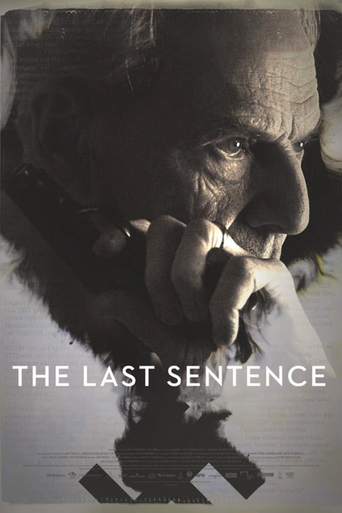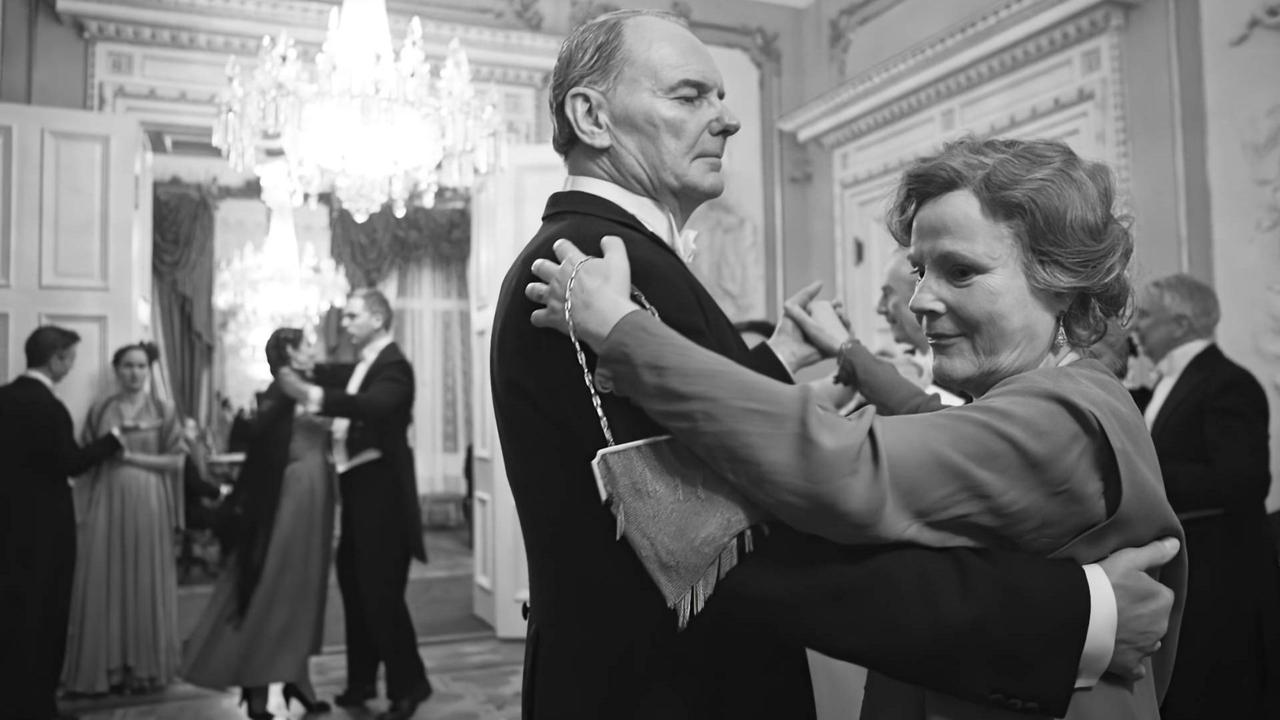lizardjims
''The Last Sentence'' (original title in Swedish- ''Dom över död man'') is the story of Torgny Segerstedt, a Swedish journalist whose fierce anti-nazi articles became a matter of great concern within the country's political life and stirred major backlash both in Germany and Sweden. The movie begins with Adolph Hitler's rise to absolute power in Germany in mid-1930s and follows the growing aggressiveness and hate-speech of the Third Reich until the ending of the Second World War, examining the influence and effect that the threat of a possible German invasion had on the decision-making of Sweden's government. The film focuses on the much-debated neutrality of Sweden and Segerstedt's bold critique on the inactivity of Swedish politicians even when Nazis invaded the neighboring Scandinavian countries. The basic flaw of ''The Last Sentence'' is that it follows an uneven rhythm and as a result, the movie can be divided into two parts, the first being tedious, almost annoying, while the second picks up speed and leads to an emotionally touching climax. The director, Jan Troell, is one of Sweden's greatest auteurs and each one of his films is characterized by its high-quality standards as well as magnificent performances. In this one, I think that Jesper Christensen's performance deserves to be in the spotlight but the whole of the cast does a tremendous job as well. My rating would be closer to 3,5/5.
palmiro
The key to this film lies, in part, in understanding the meaning of the title. "The Last Sentence" is an ambiguous translation of the Swedish because a "last sentence" might refer to the last words a man writes. Instead, "sentence" here means the "judgment" one passes on a man who has died--a judgment that endures longer than the judgments that were passed on a man while he was alive.And this citation of the "Hávamál" (an Old Norse 13th-century poem) has a special resonance in light of a toast proposed by Torgny Segerstedt early in the film: Segerstedt remarks something to the effect that we have a sacred duty to tell the truth in public matters, but no such duty in our private affairs.Jan Troell has thus given us a portrait of Torgny Segerstedt as a man who fiercely refused to say anything other than the truth about Hitler and Nazism, but who, at the same time, was incapable of acting in a truthful and caring fashion in his private life--a man who seemingly had a deeper attachment to his dogs than to any of the people who deeply loved him. And Troell has perhaps highlighted the shortcomings in Segerstedt's personal relationships precisely because he wants the viewer to sense this tension in the final judgment we place on the life of a man. Do Segerstedt's attempts to stir the conscience of the Swedes through his writings on the horrors of Nazism cancel out whatever negative judgment we might pass on his conduct as a father, husband or lover? Maybe Troell poses just such a question because he himself may sense that he's nearing the end of his own life. And so what Troell wants, perhaps, is for us to realize that we are all faced with the question of the measure of a person's life and the final judgment to be passed on that life: what weight to give to the life one has lived in public, visible to all, or to the life that one has lived in the shadows (filled with love and affection or not) of one's private life?
maurice yacowar
Two kinds of evil are analyzed in Jan Troell's The Last Sentence.The first depicts Swedish journalist Torgny Segerstedt's (Jesper Christensen) crusade against Hitler. As editor of an economic daily he campaigned against Hitler and for Sweden's going to war against Nazi Germany. Segerstedt contends that acquiescence to evil only nourishes it. We are responsible for what we allow, not just what we do. Despite the Swedish king's probably correct judgement that Germany and Russia would destroy the Swedish army in a fortnight, Segerstedt sticks to his campaign. His move from Scandinavian concern to the wider European is evidenced when his new bulldog Winston succeeds the poisoned Soren (a Kierke-guard dog?). As we know, Hitler's early sweep was facilitated by the surrender and compromises of state heads who lacked Segerstedt's courage and clarity. In this respect the film reflects upon the current debate over how to deal with the rise of jihadist-based anti- Semitism, in which the Scandinavian countries are very much in the vanguard. How "neutral" was Sweden in WW II and what was its effect? What cost neutrality or acquiescence now?The second moves from the political evil which Segerstedt addresses to the personal evil which he embodies. This fiery journalist is a surprisingly unimpressive man, an academic still obsessed with having failed his thesis (on the origin of polytheism), who has been essentially made by the women to whose spectres he turns after their deaths -- his mother, his wife, his wealthy Jewish intellectual mistress. Despite his open adultery he seems so insecure in his manhood that he keeps two huge mastiffs and the massive bulldog. www.yacowar.blogspot.com
xym07
Saw it at Busan International Film Festival(BIFF), and it was the most disappointing film of the weekend.In fact Torgny Segerstedt's story, in which an anti-Nazi journalist became a political martyr, is quite fascinating. His relationships with women are also intriguing drama material. In addition to those good ingredients, the director Jan Troell had one more ambition: making this film as a journey to the mind of Mr. Segerstedt, rather than a bland and harmless biography. What could go wrong?First of all, making a black and white period piece with digital cameras(Arri Alexa) was not a good idea; especially when you start your film with real archive films filled with gritty film grains. The images here lack any depth of field, resulting in images which are crisp and dull at the same time. The whole feature felt like a cheap TV reenactment of the actual events, rather than an artistic reinterpretation.The script is not good as well. Without some fantasy elements based on a Bergman tradition, the whole feature consists of a series of important events in the protagonist's life. The timing is always off; things just come and go without proper investments. Most of all, even though it is based on the real events during World War 2, there is no sense of dread or grief.Even though Jesper Christensen's performance was stellar, I cannot recommend this film. It is a film made with good intentions, but fails to live up to them.4/10



 AD
AD



